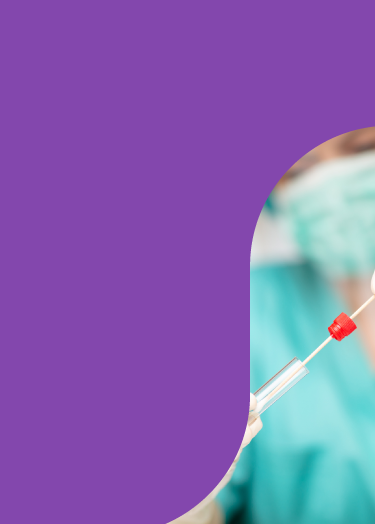
COVID-19 Testing
COVID-19 Testing Information
As part of our commitment to help Georgia fight COVID-19, Wellstar Health System is offering COVID-19 diagnostic testing — including PCR and rapid antigen COVID-19 tests — as well as antibody testing across our hospitals, health parks, medical offices, pediatric locations and urgent care centers.
Rapid antigen COVID-19 testing is also now available at many Wellstar primary care and pediatric locations. For more information, call your specific healthcare provider’s office.
Before you or a loved one gets tested, it’s important to know:
- Diagnostic tests for COVID-19 — such as PCR and rapid antigen COVID-19 tests — detect the current presence of the virus.
- Antibody tests determine whether you have been previously infected by the COVID-19 virus. These tests should not be used to diagnose someone who may have a current case of COVID-19.
Use the information below to find the best place to get tested, depending on your medical circumstance.
Know Where to Go
When it comes to COVID-19 testing, it’s essential to know the best testing location for your medical circumstance. However, where you should go to get tested depends on your level of exposure and severity of COVID-19 symptoms:
- If you have no symptoms with known, possible or no known exposure, visit an urgent care, primary care office or other testing site.
- If you have mild symptoms with known, possible or no known exposure, go to an urgent care, primary care office or other testing site.
- If you have moderate symptoms with known, possible or no known exposure, visit an urgent care or primary care office.
- If you have severe symptoms, visit with known, possible or no known exposure, seek immediate help at an emergency department.
- If a test is required for school, work or travel, get tested at an urgent care or primary care office.
- If you are simply curious if you’ve had a past COVID-19 infection, visit a primary care location.
Refer to the sections below for specific information about the types of COVID-19 testing offered by Wellstar Health System.
COVID-19 Diagnostic Testing
Wellstar is offering two different types of COVID-19 testing: PCR and rapid antigen COVID-19 tests. Both of these tests diagnose the current presence of the virus.
All Wellstar physicians can refer patients for screening and COVID-19 testing, and anyone experiencing symptoms should contact a medical professional for eligibility.
PCR vs Rapid Testing
- In both tests, a nasopharyngeal swab is administered to collect a sample. This means a swab is inserted through the nose to collect nasal secretions from the back of the nose and throat.
- PCR tests detect viral genetic material in the sample. Test results are typically available within 24 hours. Same-day results are available at the urgent care centers located at Wellstar health parks if testing is completed by noon.
- In contrast, rapid antigen COVID-19 tests detect specific protein in the collected sample, which may indicate a COVID-19 infection. Results are available at the point-of-care, normally in 15 to 30 minutes.
| Detection Method | Testing Method | Turnaround Time | Accuracy | |
|---|---|---|---|---|
| PCR | Genetic material from the virus | Processed in a laboratory | Typically within 24 hours, but same-day at select Wellstar urgent care centers if testing is completed by noon | Highly accurate |
| Rapid | Specific proteins from the virus | Processed at point-of-care | Typically within 15 to 30 minutes | Mostly accurate |
If you feel you need a COVID-19 diagnostic test, contact any Wellstar primary care physician or seek care at any Wellstar urgent care center, health park, medical office, pediatric location or emergency department.
COVID-19 Antibody Testing
Antibody blood tests check your blood by looking for antibodies, which show if you had a previous COVID-19 infection. These tests should not be used to diagnose someone who may have a current case of COVID-19.
Depending on the timing of the infection, the test may not find antibodies in someone with a current or recent COVID-19 case. It can take 1 to 3 weeks after infection to make antibodies. It is unclear whether having antibodies to the virus can protect someone from getting infected with the COVID-19 again, or how long that protection might last.
What Happens During Antibody Testing?
- Antibody testing requires a blood draw. The patient has a small sample of blood collected in a syringe.
- Results are usually available in less than 24 hours.
- Tests are right for those who experienced symptoms 10 days ago or longer. This is because it takes 10 days for antibodies to develop a dominant antibody reaction in the blood.
- These test samples can be collected at any Wellstar Health Park, primary care or physician's office, or urgent care location. Contact an office to make an appointment.

